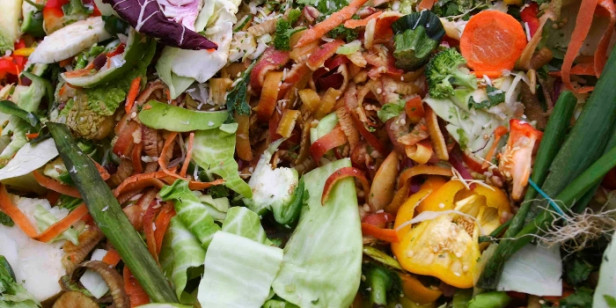In the research project Re-store knowledge is developed how to assess the impact of solutions to process organic waste. What indicators are most important and how will it be possible to measure those.
In order to ensure that there is enough food, materials and energy for everyone in 2050, our economy must become circular. There is no more waste in a circular economy - waste is raw material. Based on this vision, the AUAS works on knowledge development about circular products and processes. The Re-Organize project investigated how organic waste in urban agriculture areas can be reused locally using new solutions. Examples include local bio-fermentation, composting and insect breeding. The new Re-StORe project will extend the scope of urban agriculture research into the built environment.
Would you like to know more about the project or would you like to get involved, please contact Maarten Mulder, projectmanager of Re-store, m.mulder3@hva.nl
What is the goal of the project?
Companies and institutions have difficulties to assess and evaluate the impact of new solutions to process organic waste. They are interested in how sustainable these solutions are. Besides financial consequences they need to gain more insights in the environmental and social effects. The goal of Re-store was to gain more knowledge on how these companies and institutions can create these insights, in a time and cost-efficient way.
What is the result of the project?
The first objective was to develop a method/ tool, so companies and institutions can evaluate and asses the sustainability of the proposed/ implemented solutions. The second objective is create simulation models to assess the impact of system changes and to create design guides.
Who initiated the project and which organizations are involved?
In Re-StORe, the HvA works together with SMEs from the entire chain, from collection to use, with the municipality of Amsterdam and with knowledge institutes in the field of the urban circular economy. Through these knowledge institutes and the trade association BVOR knowledge from the project is widely available to companies throughout the value chain around urban organic waste.
Partners:
- Amsterdam Institute for Advanced Metropolitan Solutions (AMS)
- Avalex (composting company)
- Branche Vereniging Organische Reststoffen
- BuurtCompost (worm composting in the neighbourhood)
- De Ceuvel (circular cafe)
- Eco-cycle (decentral composting)
- Enki Energy (small scale biofermentation)
- Municipality of Amsterdam
- GroenCollect (collecting organic waste)
- Meerlanden (composting companty)
- Metabolic (sustainability consultancy)
- NDSM Energie (sustainability collective)
- The Waste Transformers (using organic waste)
- TU Delft
What can other cities learn from your project?
In Re-store we focus on composting and biodigestion solutions. We use four case studies to gain data and test the tool. We are modelling the environmental impact of solutions, which can be used in more comprehensive studies.
The tool is developed partly open-sourced so it could be used by any city and company, by completing necessary data .





